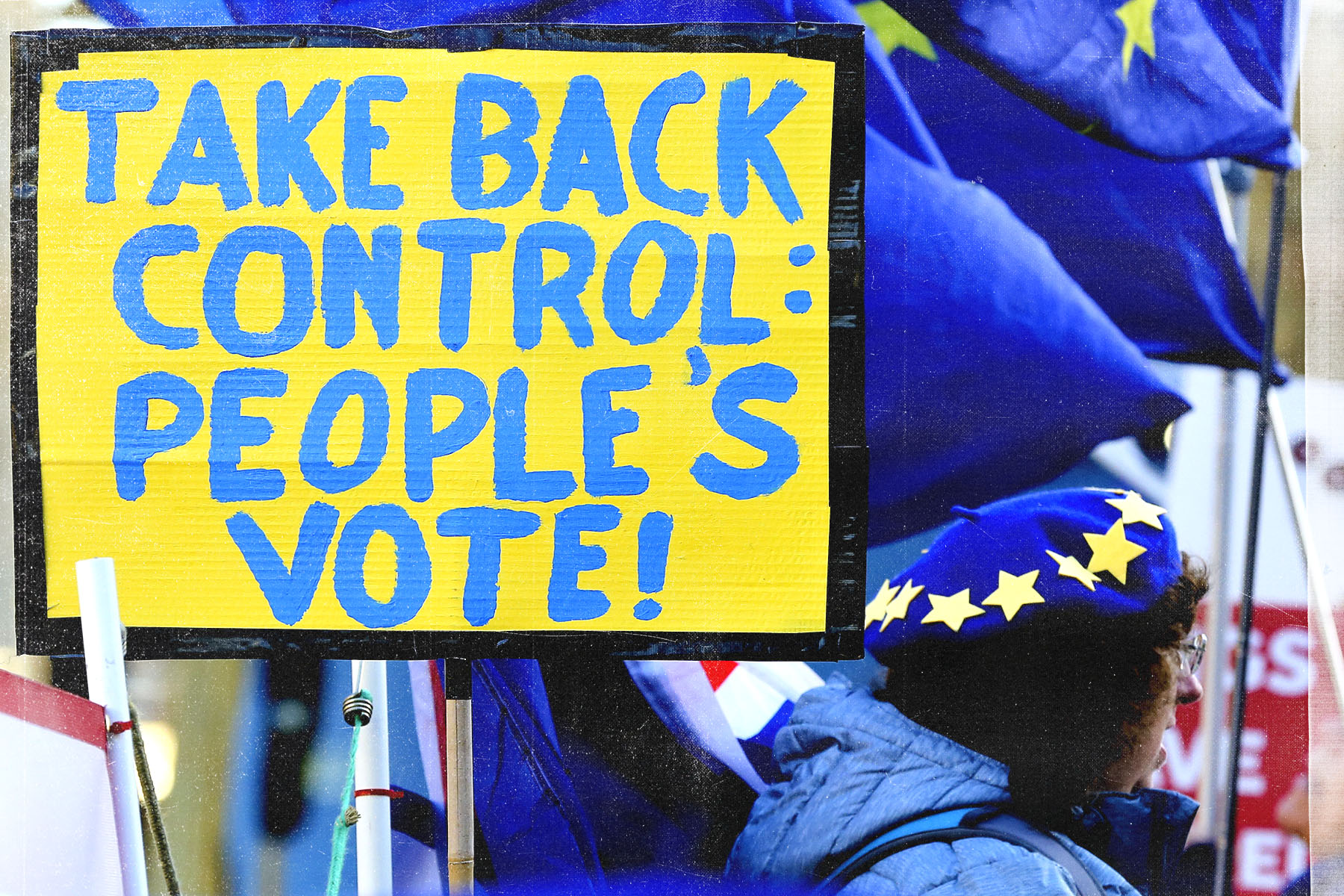
- Home |
- Search Results |
- ‘Take back control’: how colonial nostalgia still informs political discourse
‘Take back control’: how colonial nostalgia still informs political discourse
Behind every political slogan is a political history; here Kehinde Andrews, the author of New Age of Empire, traces the roots of the language that drove Brexit.
“Take back control” has become a well-known catchphrase, a symbol of the successful campaign to remove Britain from the European Union. It came to embody the sense that Brexit was necessary for Britain to escape the devious clutches of the EU, to regain control over borders and laws in order to restore much needed ‘sovereignty’.
Yet as much as the slogan is about the future, it is rooted in a particular vision of the past, the idea that the nation desperately needs to rediscover a perceived former glory. It is not difficult to understand the loss that is being mourned here: it is colonial nostalgia for a time when Britain’s dominance was unparalleled and the nation’s identity was much neater.
The roots of the desire to control the borders were planted in Conservative election campaigns dating back to the 1960s against so-called ‘coloured immigration’. Peter Griffiths’ unofficial slogan “If you want a n***** for a neighbour, vote labour” that helped carry him to victory in the 1964 Smethwick by-election is the most obvious example, but when Margaret Thatcher argued that Britain was becoming “afraid that this country might be rather swamped by people with a different culture” before sweeping to power in 1979, she was singing from the same hymn sheet.
Over the last 40 years, the Thatcherite blueprint has been extremely successful, liberating the rich from their tax duties and shrinking the social safety net, all whilst blaming ‘bloody immigrants’ for the lack of good jobs and public services. The only difference with the anti-immigration sentiment that was no doubt a factor in the vote for Brexit was that the anger was being turned on white migrants, too.
Even though leaving the EU would have almost no impact on Black and Brown migration, it was clear in the ‘leave’ campaign that the spectre of the dark immigrant had to be mobilised. Nigel Farage consistently raised fears of Turkish hordes swamping the homeland even though there is no prospect of them being invited into Europe’s exclusive club.
The low point of the campaign was Farage’s ‘breaking point’ poster, featuring Syrian refugees as some dark menace. (Even Boris “piccaninnies” Johnson had to condemn such a blatant appeal to racist ideas.) The tone of the leave campaign was clear: to ‘take back control’ meant to return the glory days before immigration transformed the mother country, making people strangers in their own land.
Colonial nostalgia can be most obviously seen in the hubris of Whitehall officials who, following the 2016 referendum, dubbed Britain’s reengagement in the world ‘Empire 2.0’. There is at least an acknowledgment that Britain was only ever great as an empire that drew its wealth from exploiting other parts of the world. But in genuinely believing that Britannia could once again rule the waves, the delusions of the little England worldview are obvious. The empire is gone, and Britain joined the EU because this small island, with few resources, is in no position to be a global leader without relying on other parts of the world for support.
Britain was one of the most important players in building the Western empire throughout the 17th and early 18th Centuries, enslaving and pillaging the globe to create the modern world. But Britain was also one of the architects of the new age of empire, when the levels of violence and nation state-led systems of oppression could no longer hold. By helping to shape institutions like the UN, IMF, World Bank and even the EU, Britain helped design the new global order that ensured the end of its own dominance.
The tone of the leave campaign was clear: to ‘take back control’ meant to return the glory days before immigration transformed the mother country.
The centre of power has shifted across the Atlantic and to global corporations not bound by national constraints. The elite – the Farages and Johnsons of the world – are fully aware of this and are busy gorging at the trough that the latest version of Western empire offers them. Meanwhile, they peddle a fantasy version of British nationalism that pretends the nation can return to its former colonial glories.
Unfortunately, British colonial arrogance is so deeply rooted in the national psyche (and school system) that it is too easy to convince so many that if only the supposedly ‘real’ British people could take back control of their destiny, the nation would again rise to the top of the world. There is a twisted irony to those profiting from the new age of empire by using nostalgia for old world order. The only people gaining control are the elite, the private interests feasting on the profits of an unjust social order.
What did you think of this article? Let us know at editor@penguinrandomhouse.co.uk for a chance to appear in our reader’s letter page.